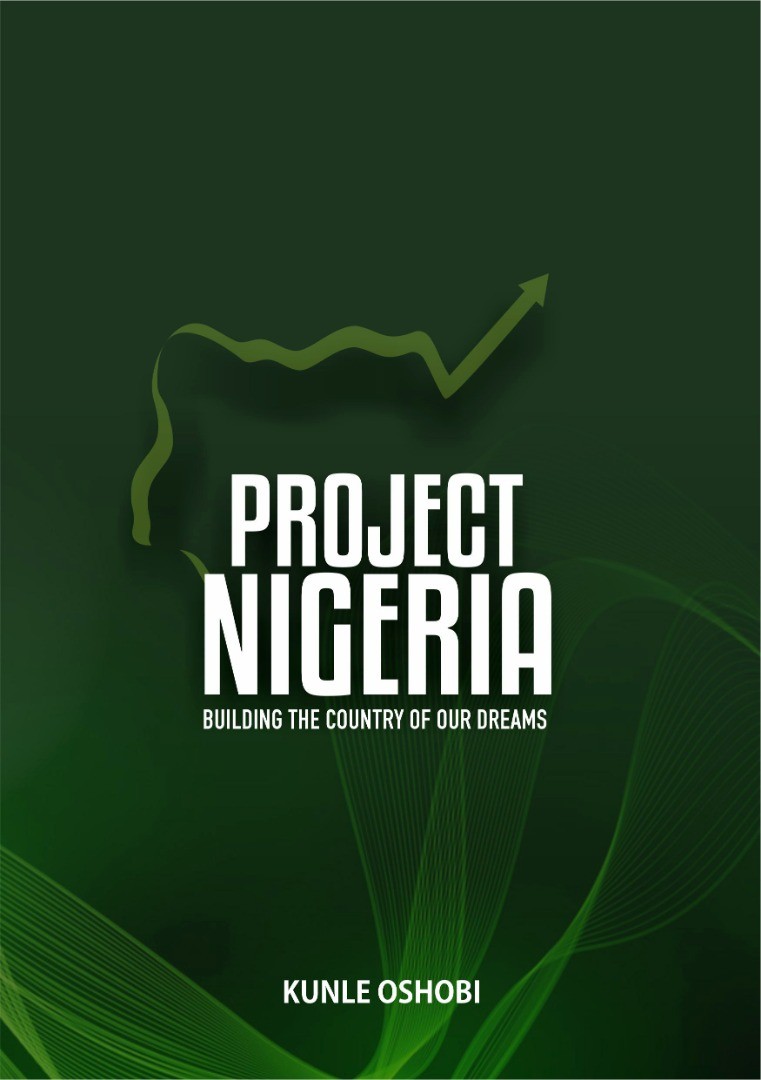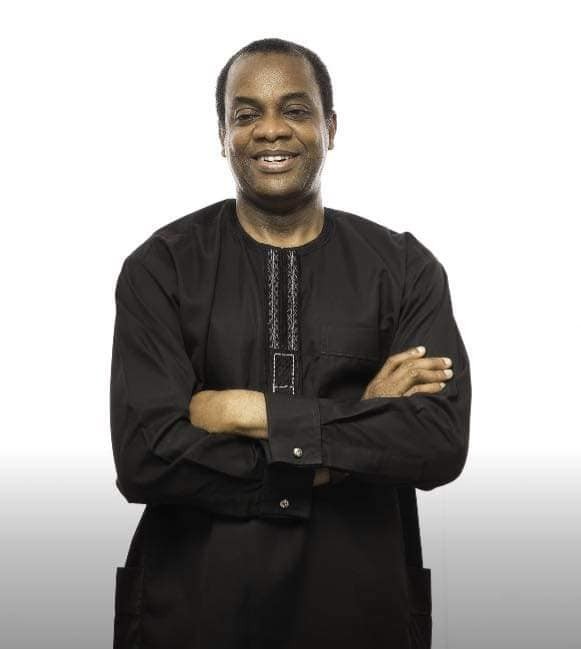Project Nigeria: Foreword By Donald Duke

Foreword by Donald Duke
In this work Project Nigeria, Kunle Oshobi takes us through the frightening challenges that Nigeria faces against the enormous potential that it abounds and surmises the urgency of now. With an unbridled population growth averaging 3.5% and an economic growth slagging in the lower 2%, the overall economy has recessed over the years with Gross Domestic Product per capita being severely eroded due to an inadequacy of the factors of production, power, access to availability and affordability of financing, poor infrastructure etc. Despite the much-touted progress being made under the aegis of “ease of doing business”, the effects are hardly felt and there is almost an unanimity that Nigeria poses, as one of the most difficult business environments on the continent.
The Nigerian potential is in no doubt. Take for instance the telecommunications industry, recently a telecoms company declared in its annual report a gross annual revenue of 1.2 trillion Naira which amounts to about 12% of the nation’s budget. The combined revenues of the four major telecom companies could probably average about 25% of the budget of the nation. One sector! This in itself begs the question, do our economic managers understand what is happening? Are they able to match the enormous potential against the enormous challenges? Do they appreciate the urgency that a potentially already failing state portends for the nation, the sub region and its global implications?
In a generation, Nigeria’s population is postulated to double from its current 200 million to 400, thus making her the 3rd most populous nation on earth. With about half living below the poverty line, the consequences if not urgently addressed may trigger a situation difficult to contemplate. Despite an abundance of resources, the nation seems to have stalled its comfort at fossil fuels where for the last 40 years the daily output has hardly matched its installed capacity of 2.5mbd. But in real terms, cost of production has gone from an average of $5 in the seventies to the lower $20s today. In other words, net receipts have grossly dipped. Indeed, the nation’s federal budget has hovered at about $25 billion over the last 40 years but in real terms, value has ebbed severely. This is stark! Within this period the population has grown from 80 to 200 million.
The earlier reference to the telecommunication’s sector revenue averaging about 25% of the budget speaks of a gross dereliction or inadequacy in revenue collection by the revenue authorities, particularly when compared with our tax to GDP ratio at barely 5%. Oshobi urges focus on the levers of production, education and skills as human capital development, healthcare and infrastructure. He urges certain critical sectors with the potential of job creation and impact to be pursued with unrelenting vigor.
Towards achieving this, our trade policy must change. It must be based on reciprocity and trade or investment balance. Leveraging on our large consumer market, we must coerce our trade partners to invest in critical sectors of the Nigerian economy, inclusive of agriculture, infrastructure, defence industry, consumer products, health and skills development sectors. This will stem the further hemorrhaging of the economy, create jobs and infuse technology transfer. Adding value to imported items by allowing, for instance, only consumer electronics products as CKD and thereby compelling the assembly of these items locally will not only create jobs but will ensure skills and technology transfer.
Another policy area requiring re-visitation is the hardly compelling economic logic in demanding that trade within the ECOWAS sub region should be conducted in foreign currency. A mechanism that would allow the acceptance and convertibility of local currencies using a nominated existing bank with a wide operating base in the region as a clearinghouse or some designated institution will encourage inter-regional trade, allowing these countries conserve their foreign currencies for high valued goods not produced or manufactured within the sub-region.
We ought to explore an array of policy options as a means of encouraging and enhancing productivity within our economy. Our population, if well utilized is a blessing, as is the reverse if current trend continues. Project Nigeria is styled as a blueprint to achieving a growth potential that encapsulates the entire national fabric. Driven based on enhancing the human capital index and focusing on the development of the mind through education and social orientation to ensure the increased productivity of Nigerians. It further delves into the totality of governance as it relates to the nation. For instance, it recognizes that a complete reorientation is required in the attitudes of the government and the governed so that each complements the other towards a single goal, being the overall wellbeing of each citizen.

Using four sectors namely for illustrative purposes, financial services, power, agriculture and its allied industries and petrochemicals which are by no means exhaustive, Kunle has advocated these sectors with the view that if properly repositioned could by themselves be the fulcrum to catalyze the economic rebirth of the nation. Other sectors of the economy are addressed, identifying the challenges they face and proffering solutions to them.
The aviation sector he postulates, for instance, is bridled with high taxes and levies, inconsistencies in policy thus making it uncompetitive against international players and results in it contributing a meagre 0.4% to GDP as against an average of 10% in Kenya, Ethiopia, Rwanda and South Africa. Huge losses resulting from over-regulation as stated earlier in the aviation industry and total neglect or under regulation as depicted in road, rail and water transportation resulting in a further potential loss of over 10% of GDP.
The completeness of this work is its analytics of various sectors, identifying the challenges and proffering solutions. Mindful of the human capital and political will to make things happen, the inadequacy of local managerial expertise and the need to groom managers, rather than on the reliance of expatriates.
If anything, what the 2020 COVID-19 pandemic experience has brought to the fore is the veneer thinness and vulnerability of the Nigerian economy. Unable to absorb shocks and consequently operating as a hothouse plant that collapses at the slightest stress, the Nigerian economy operates on the principle of everything being equal. This is a fallacy as nowhere in the world do such conditions exist. Things don’t happen, people make things happen and therefore our budgets and budgeting principles and framework are piecemeal and guesswork that are hardly ever attained.
COVID-19 collapsed the global demand for crude oil, consequently throwing the2020 Nigerian budget into a tailspin. With a poor industrial production base, highly dependent on imports, funded largely by earnings from a single commodity, the entire national socioeconomic fabric descended into tatters. Therefore, the need for a new economic order is not only imperative but long past overdue, for a society that does not help the many that are poor, will be unable to save the few who are rich.
•Written By Donald Duke

